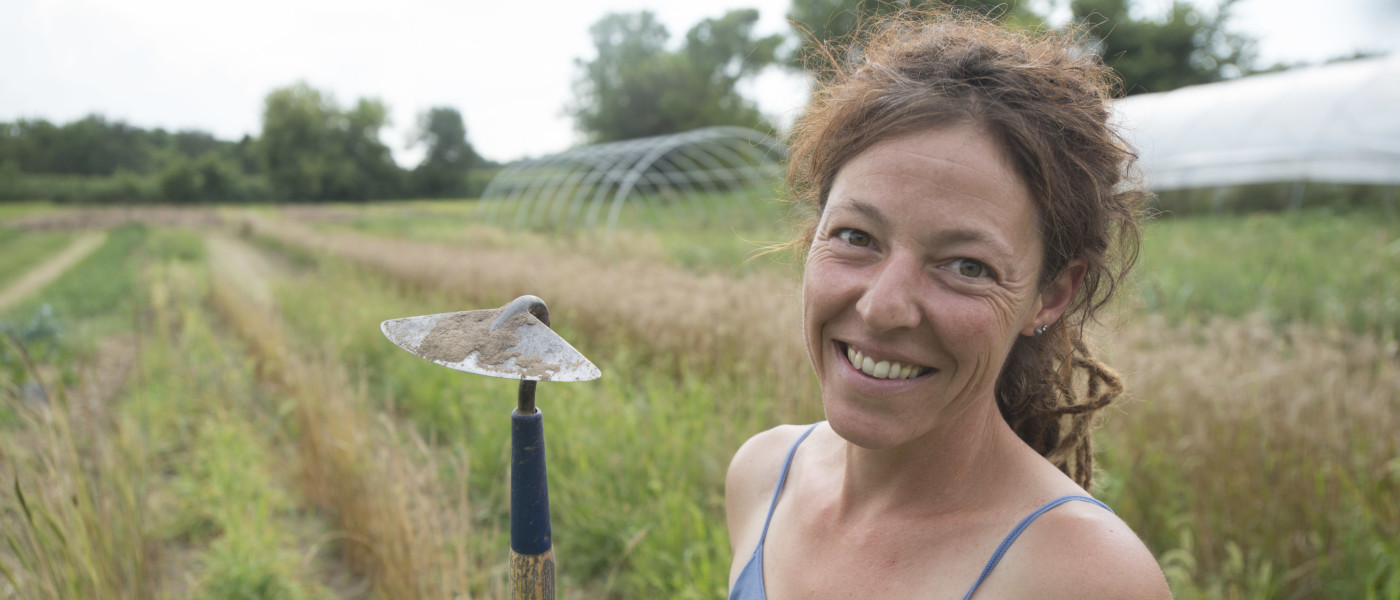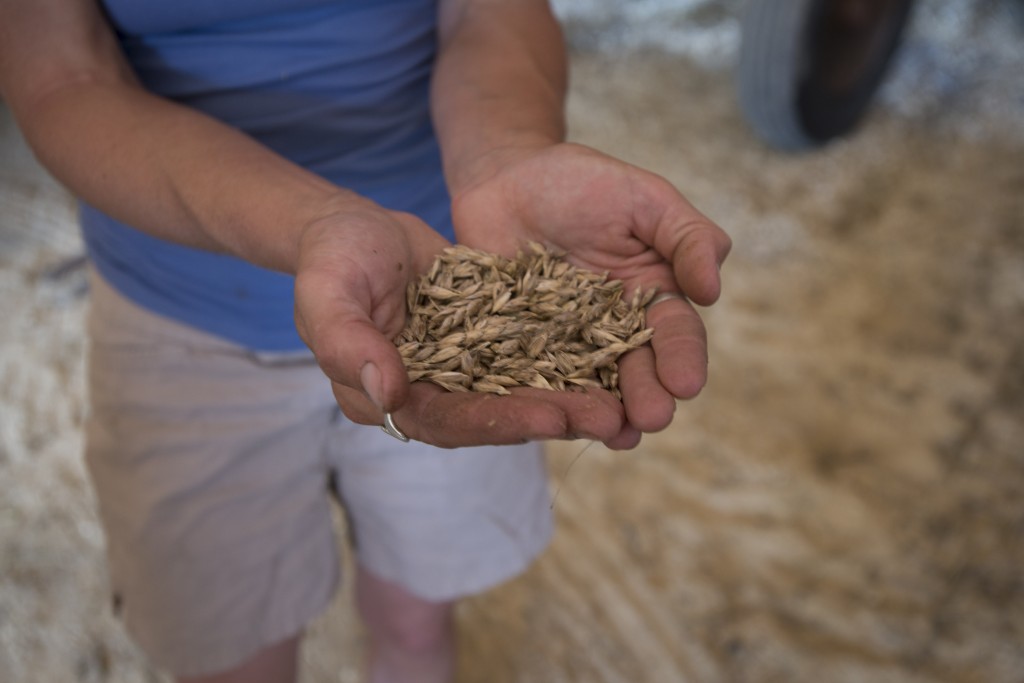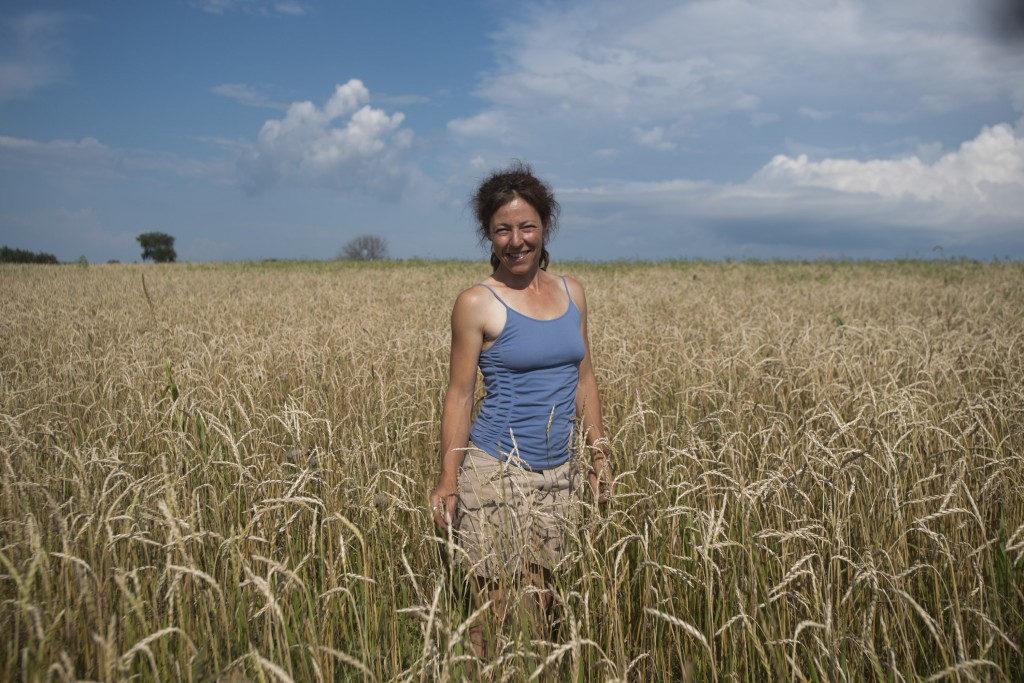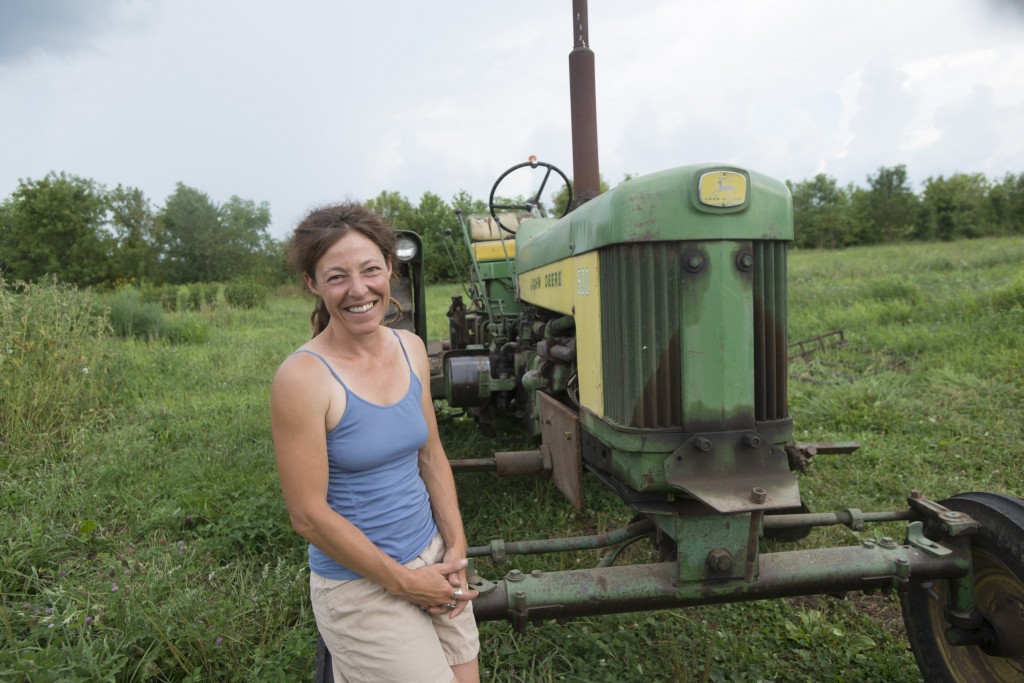When most people think of a typical farmer, they might not picture a petite woman standing just shy of 5-feet-tall, with a full head of braids that cascade down her back. Enter Andrea (Andy) Hazzard, founder and operator of Hazzard Free Farm.
“My inspiration to farm comes from my childhood,” says Andy, whose grandparents also farmed. “In the summer of 2006, I knew that I wanted to get into farming…I have a background in horticulture and forestry, so it comes naturally to me.”
In 2007, she established her own farm. When choosing a name, Andy and her family bounced around a few ideas. At first, they considered Coolidge Creek Farms, in honor of the creek that flows near their land. Then they thought about Farmer and Adele, to play on Andy’s middle name. But at the end of the day, Hazzard Free Farm was the name they kept coming back to.
“We thought it was a pretty unforgettable name. We wanted it to include our last name and overall it just fit,” she says, tying the play on words to her commitment to sustainable and responsible farming.
“We’ve got to figure out a better way. I’m sure technology will have one answer, but there are other answers that are just plain old common sense.”
Hazzard Free Farm has a small staff, generally no more than four part-time employees, who help grow grains like oats, corn and wheat. The grains are typically delivered to restaurants and distributors or can be purchased online by consumers. Many of the foods grown on the farm are heirloom varieties and ancient grains, making seed-saving a very important task.
“We grow a lot of different and unusual varieties that are hard to find seeds for, and if you can, they’re very expensive. You have to become somewhat of a seed-saver – that’s an important part of our operation,” Andy says.
Hazzard Free Farm places sustainability first and foremost. It was environmental sustainability that led Andy to farming, driven by her desire to take better care of the world we all live in. She believes that she has a moral and ethical obligation to consider many things when heading to work every morning: renewable energy options, what happens to the runoff water from her operation, and whether or not she is putting anything harmful into the environment, to name a few.
Hazzard Free Farm does not use treated or GMO seeds, instead cultivating ancient, open-pollinated or heirloom varieties. Andy does not apply chemical pesticides, herbicides, insecticides or fungicides to her crops. Instead, she uses patience and experience to adapt ancient and heirloom grains to her farm’s soil and her farming practices. This can take three to five years or even more, but it pays off in the health and ecological benefits to the land, the increasing biodiversity of the farm, and the resulting food and health of her customers.
“The reality is that the way we interact with nature in farming is causing the collapse of the ecological system, there is no arguing about it,” says Andy. “We’ve got to figure out a better way. I’m sure technology will have one answer, but there are other answers that are just plain old common sense.”
Andy works hard to implement these beliefs into her work on the farm, and she also uses her limited spare time to inform others about farming. One way she does this is by educating people on the importance of purchasing food directly from farmers. She also likes to explain the process of farming to help people understand how different it is from a typical 9-5 job.
Not only does she do her own outreach about the farm-to-table movement and the nature of farming, but she also works with the Roots & Wings Network in Rockford, Illinois. Through their program, she invites kids to her farm for a few days, teaching them everything from planting, to weeding, to how to build a mini-chicken coop. Many of the kids began the program around the age of 11. Today many are now young adults who are still tending to gardens — and some even work at the farmers market.
“It’s important to me because I want people to be inspired by nature, like I am,” Andy says. “I was checking out [the students’] garden maybe a week or two ago…it was amazing to see how far it has come. It is amazing to see how the program has grown, and how the kids have grown.”
Andy’s passion for farming and her commitment to doing it in harmony with nature is clear, in both her words and her actions. Whether that is through her sustainable farming practices or her educational work, she wears the Hazzard Free Farm badge with pride and is an outstanding ambassador for family farmers.
Andy believes that financial sustainability is also critical to a well-rounded and functional farm, so figuring out how to make and save money is one of the biggest challenges her farm faces.
As for being a woman in a male-dominated industry? Well, for Andy, that is most noticeable when she is trying to drive a tractor made for a 200-pound man or when she has to make a pulley system to move things around on the farm. Other than that, there isn’t much of a difference, she notes, although she does think she has a bit of edge over male farmers.
“I tend to pay a little more attention to nature, I think that’s just part of being a woman. We approach things a little bit more thoughtfully and carefully in some ways.”
As Hazzard Free Farm learns more about how to grow and sell different crops in the marketplace, Andy hopes to continue sharing that information with other farmers. She wants to help increase the number of farmers who are able to diversify their operations, operate with fewer chemicals and make a fair living. Andy says, “The road we are still headed down is less and less people farming every year and we need to break that trend.”
See more of Andy in this interview that Farm Aid photographer Paul Natkin conducted on her farm:
And see even more about Andy and Hazzard Free Farm in this documentary short by Chicago-area film director Pablo Korona.
Visit Hazzard Free Farm's websiteFind Good Food
Visit our Find Good Food page for tools to learn where you can find food from family farmers in your area like Andy Hazzard







